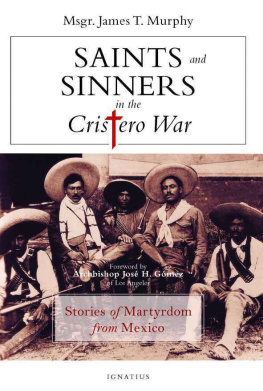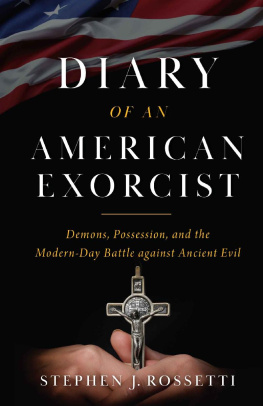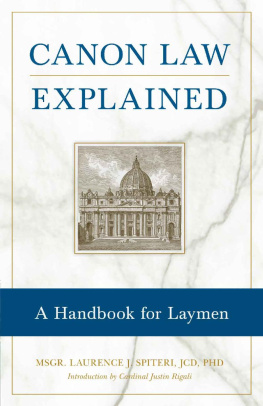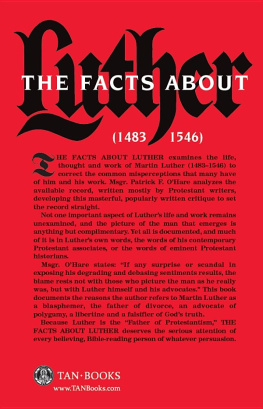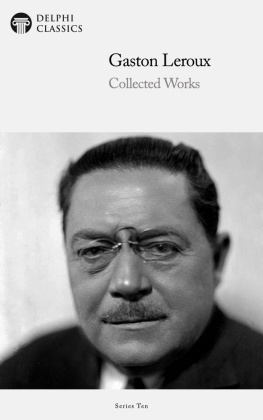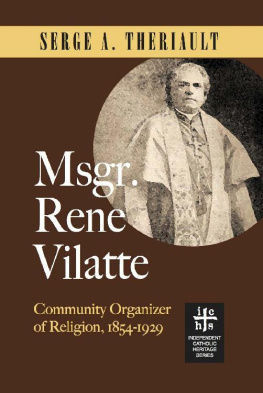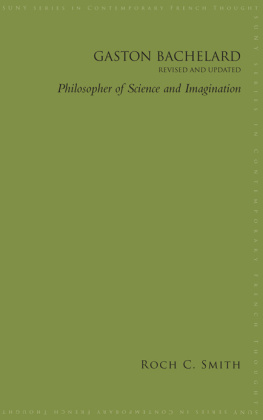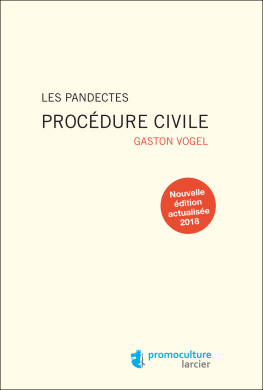Msgr. Louis Gaston de Segur - Confession: A Little Book for the Reluctant
Here you can read online Msgr. Louis Gaston de Segur - Confession: A Little Book for the Reluctant full text of the book (entire story) in english for free. Download pdf and epub, get meaning, cover and reviews about this ebook. year: 2015, publisher: TAN Books, genre: Detective and thriller. Description of the work, (preface) as well as reviews are available. Best literature library LitArk.com created for fans of good reading and offers a wide selection of genres:
Romance novel
Science fiction
Adventure
Detective
Science
History
Home and family
Prose
Art
Politics
Computer
Non-fiction
Religion
Business
Children
Humor
Choose a favorite category and find really read worthwhile books. Enjoy immersion in the world of imagination, feel the emotions of the characters or learn something new for yourself, make an fascinating discovery.

- Book:Confession: A Little Book for the Reluctant
- Author:
- Publisher:TAN Books
- Genre:
- Year:2015
- Rating:5 / 5
- Favourites:Add to favourites
- Your mark:
- 100
- 1
- 2
- 3
- 4
- 5
Confession: A Little Book for the Reluctant: summary, description and annotation
We offer to read an annotation, description, summary or preface (depends on what the author of the book "Confession: A Little Book for the Reluctant" wrote himself). If you haven't found the necessary information about the book — write in the comments, we will try to find it.
Confession: A Little Book for the Reluctant — read online for free the complete book (whole text) full work
Below is the text of the book, divided by pages. System saving the place of the last page read, allows you to conveniently read the book "Confession: A Little Book for the Reluctant" online for free, without having to search again every time where you left off. Put a bookmark, and you can go to the page where you finished reading at any time.
Font size:
Interval:
Bookmark:
Confession
A Little Book for the Reluctant
Msgr. Louis Gaston de Sgur
WITH THE APPROBATION OF HIS EMINENCE THE CARDINAL ARCHBISHOP OF NEW YORK
Published in English in 1875 by P. OShea, Publisher, New York, under the title Confession.
Entered according to Act of Congress, in the year 1875, by OShea, in the Office of the Librarian of Congress at
Washington, D.C.
Retypeset and republished in 1989 by TAN Books.
ISBN: 978-0-89555-385-0
Library of Congress Catalog Card No.: 89-51366
Cover design by Sebrina Higdon.
TAN Books
Charlotte, North Carolina
www.TANBooks.com
2010
About the Author
Msgr. Louis Gaston de Sgur (1820-1881) was a well-known French Catholic apologist and writer of the 19th century. He wrote many little books, and these became very popular. In particular, his works entitled The Pope, Confession, and Communion circulated in the hundreds of thousands of copies.
Born in Paris, in his youth Louis de Sgur had been rather indifferent to the Faith, but then he reawakened to the things of God and embraced the Faith fervently. He soon abandoned an important diplomatic position and the pursuit of painting (he had showed considerable talent at this) to enter the Seminary at St. Sulpice. He was ordained in 1847.
As a priest Msgr. de Sgur devoted himself in many ways to the evangelization of children, the poor and prisoners; he took care of imprisoned soldiers as a volunteer chaplain, receiving no pay. He also labored untiringly in many religious works, giving his time and money generously and also begging money for them from others. These projects included works for laborers, apprentices, military chaplaincies and seminaries. Msgr. de Sgur also brought the Faith to those living in the suburbs of France. Incidentally, he seems to have been acquainted with the Cur of Ars.
In 1859 Msgr. de Sgur founded the St. Francis de Sales Association for the defense and preservation of the Faith. In only a year he established the Association in 40 French dioceses; it collected and distributed large amounts of money (800,000 francs annually) and grew to nearly two million associates during the Founders lifetime. It also spread to other countries.
Around 1852 Msgr. de Sgur had been appointed to be an auditor of the Roman Rota; in the Eternal City he was held in high esteem and affection by Pope Pius IX. But becoming afflicted with blindness, Msgr. de Sgur had to return to France. He returned with the honors and privileges of the episcopate, although on account of his blindness he was never actually consecrated a bishop.
Msgr. de Sgur had already written some books at this time, but after becoming blind he produced many more. One of his best-known books was Reply to the Most Commonly-Spread Objections against Religion, which sold 700,000 copies during his life, not including the editions in Italian, English, German, Spanish and even the Hindu language.
Msgr. de Sgurs works are of two kinds: works of apologetics, and books on piety and the interior life for the common peoplein particular, for those who ignored religion. These books included Chats on Protestantism, One Hundred Fifty Beautiful Miracles of Our Lady of Lourdes (2 vols.), Popular Objections against the Encyclical [the famous encyclical Quanta Cura, against Modernism], Freemasons, and Familiar Instructions on all the Truths of Religion.
The Catholic Encyclopedia notes, One need not seek in these works vast learning nor didactic discussions. The author did not strive for this; he intended his apologetic books for the people and for all who ignored religion. They were mostly brief pamphlets, vigilant, full of vivacity and spirit, written with a frankness wholly French, in a popular style, sprinkled with caustic irony and Parisian pleasantries. In his ascetical works he aimed above all to spread the true principles of Catholic spirituality in opposition to the old traditions of Jansenism and Gallicanism. His zeal was crowned with success, his little books attained numerous editions.
In this book, Confession, one can see the delightful straightforwardness, touched with charm and wit, which made Msgr. de Sgurs books so popular. Moreover, he shows himself to have a true priestly heart in that he loves souls and is solicitous for their salvation. In this he follows the example of the Good Shepherd, who leaves the 99 just in the desert to go search out one lost sheep. We hope that through this little book Msgr. de Sgur will continue to find sheep who have strayed and bring them back to the fold of his Master.
The Publishers
July 25, 1989
(Information from The Catholic Encyclopedia.)
Contents


Prologue
For the Reluctant
Confession! In this enlightened age? In the full glare of this nineteenth century? For clerics? For Capuchins? For Jesuits?
Softly, my friend, do not be angry to begin with. Only listen to me, and before we finish you will see that you are in the wrong and I in the right.
In the full glare of the nineteenth century, must we not believe what is true, love what is amiable, and esteem what is estimable? Well, such is Confession, even though it be decried in every bad place and vilified in every bad book.
In speaking to you now, I take you for what you certainly are, a Christian, an honest man, of upright mind and good heart. I appeal to your good sense. Take, read, judge.
1. The Definition of Confession
Confession means acknowledgment. It is the acknowledgment of our sins which we must make to a priest to obtain our pardon from God. To confess is to go to a priest, a minister of Jesus Christ, and acknowledge to him, in simplicity and repentance, all the sins we have had the misfortune to commit.
Those who never confess have the strangest and most absurd ideas of Confession. A Protestant lady, who had often come for advice to Msgr. Cheverus, Bishop of Boston, said to him one day that Confession appeared to her absurd. Not quite so absurd as you think, replied the saintly Bishop, smiling. Without suspecting it, you have felt its value and necessity, and for a long time you have been confessing to me, since Confession is nothing more than confiding the troubles of conscience that you find so much relief in disclosing to me. This good lady made no delay in confessing properly and becoming a Catholic.
Again, nothing is more natural than Confession. Voltaire (a witness not to be suspected of pro-Catholic prejudice) acknowledged as much in one of his lucid moments. There is perhaps no institution more useful, wrote he. Most men, when they fall into great faults, feel remorse. If there is anything on earth to console them, it is the means of being reconciled to God and themselves. Then, when we confess we unburden our conscience of the sins which dishonor it, and we find, in the Sacrament of Penance, peace of heart and joy of soul.
2. Is It Absolutely Necessary to Confess?
Yes, absolutely, my dear friend; there is no more room for questioning. God wills it, and He is Master. In vain you exclaim or expostulate. God wills that we confess; He Himself established Confession, and what He has established is permanent.
When God came on earth, He chose a certain number of disciples, whom He made His priests. To these He gave the command to go and preach penance to all menand He gave them and their successors, to the end of time, the power of pardoning sins in His name. By this act He has imposed on all, without exception, the obligation to acknowledge, to CONFESS, to these men who are His ministers, His representatives. Without this Confession, we remain in the bonds of sin, and after death we shall go to Hell. It was God Himself, our Saviour Jesus Christ, who said to His priests, Receive ye the Holy Ghost. Whose sins you shall forgive, they are forgiven; whose sins you shall retain, they are retained. Whatsoever you shall bind on earth shall be bound in heaven, and whatsoever you shall loose on earth shall be loosed also in heaven.
Next pageFont size:
Interval:
Bookmark:
Similar books «Confession: A Little Book for the Reluctant»
Look at similar books to Confession: A Little Book for the Reluctant. We have selected literature similar in name and meaning in the hope of providing readers with more options to find new, interesting, not yet read works.
Discussion, reviews of the book Confession: A Little Book for the Reluctant and just readers' own opinions. Leave your comments, write what you think about the work, its meaning or the main characters. Specify what exactly you liked and what you didn't like, and why you think so.

